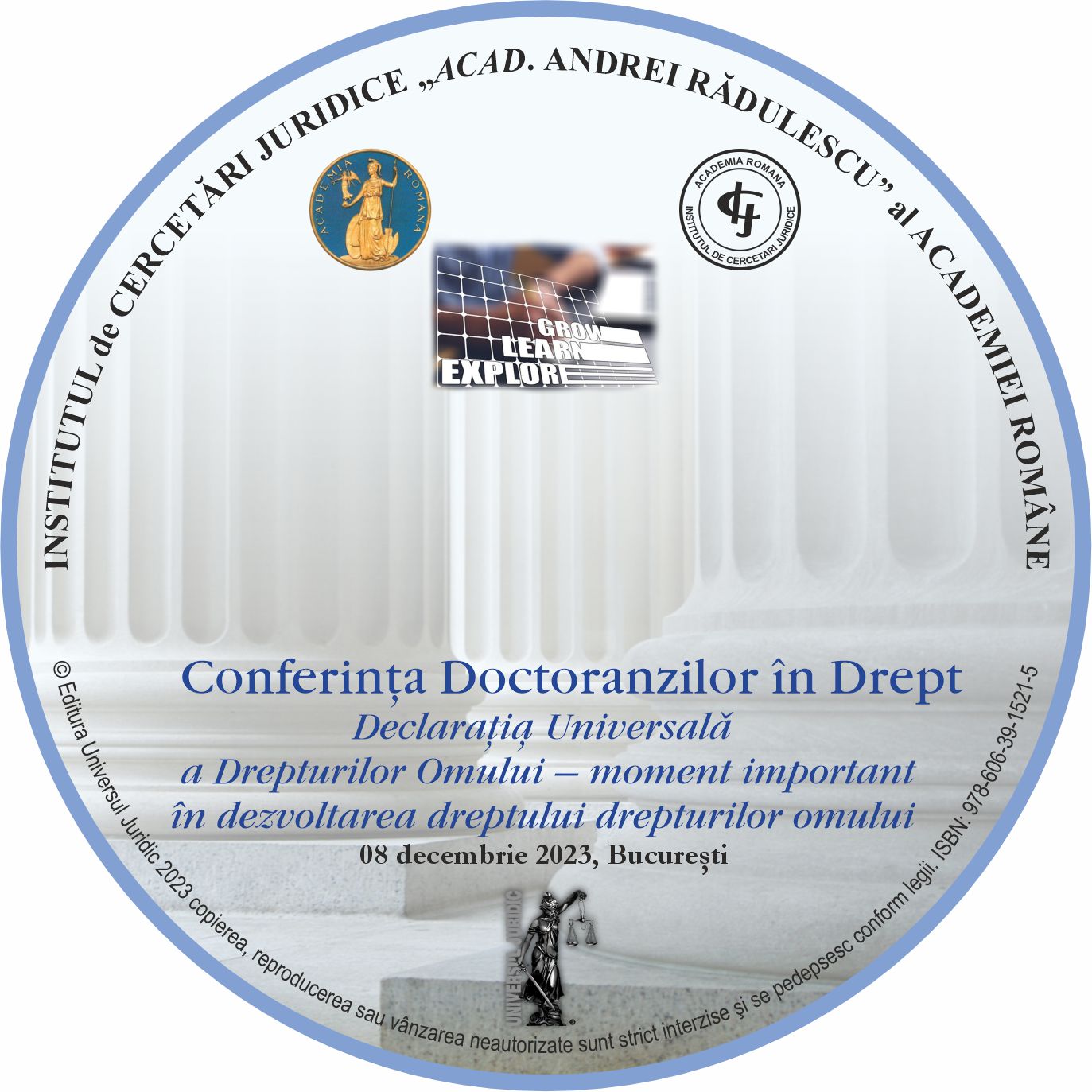Dreptul la muncă - drept fundamental al omului
The Right to Work - Fundamental Human Right
Author(s): Adrian-Cornel Boaje
Subject(s): Constitutional Law, Labour and Social Security Law
Published by: Universul Juridic
Keywords: Right to Work; Fundamental Right; Constitutional Law; Social Rights; European Convention on Human Rights; The Right to Benefit From Social Assistance and The Right to Collective Bargaining; ECHR Juris
Summary/Abstract: Regulating the freedom of work of any person and their right to choose their profession and workplace, the Constitution took into account, first of all, the possibility of giving every able-bodied person the opportunity to perform work as they see fit. Assuming the status of an employee, implicitly contributing monthly to the social insurance fund, the employed person has the right to a series of social protection measures, considering the fact that the justification, which is the fundamental principle, of the establishment of social insurance funds is that of the solidarity of the members who contribute to them. Also, the same article establishes the fundamental right to collective negotiations, as well as the binding nature, guaranteed by the Constitution, of the negotiations and the contracts/agreements concluded following these negotiations between employers' organizations as well as union organizations. Starting from these three fundamental rights (the right to work, the right to benefit from social assistance and the right to collective bargaining), a unitary, interdependent framework is created, through which the state, through the representative authorities and institutions, has the constitutional obligation to protect and guarantee the appropriate remuneration of work, to protect, in difficult situations, the employees who contributed monthly to the creation of social protection funds. The European Convention on Human Rights established only a few of the economic and social rights, most of the guarantees established by the Convention regarding the civil and political rights. The economic and social dimension of the fundamental rights imposed the regulation of some of the social rights in the body of the Convention at the time of its drafting and justifies the addition of some economic rights through additional protocols. The right to work is not established in the European Convention. However, evaluating the ECHR law in its evolution, we identify an indirect protection of social rights, namely in close connection with the right to a fair trial (the applicability of art. 6 in the case of the dismissal of an employee of a private enterprise) or non-discrimination (in terms of social benefits) or even in connection with the right to life, private or family life, or the prohibition of ill-treatment (right to health, environmental protection, indirect protection of social rights from the standpoint of art. 3 of the Convention.)
- Page Range: 37-50
- Page Count: 14
- Publication Year: 2024
- Language: Romanian
- Content File-PDF

